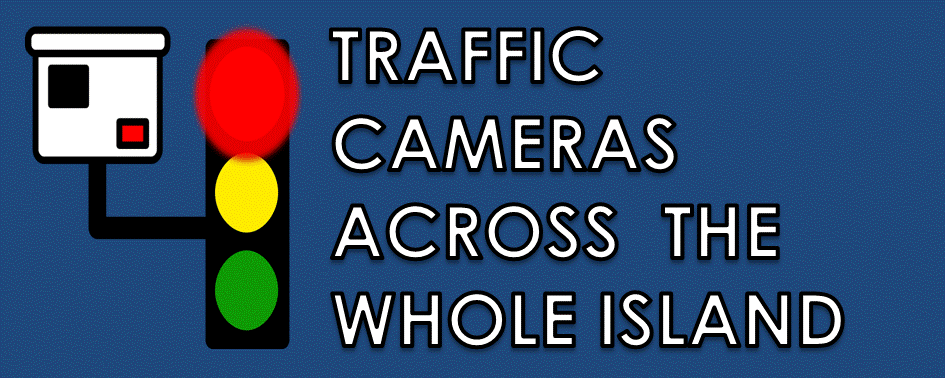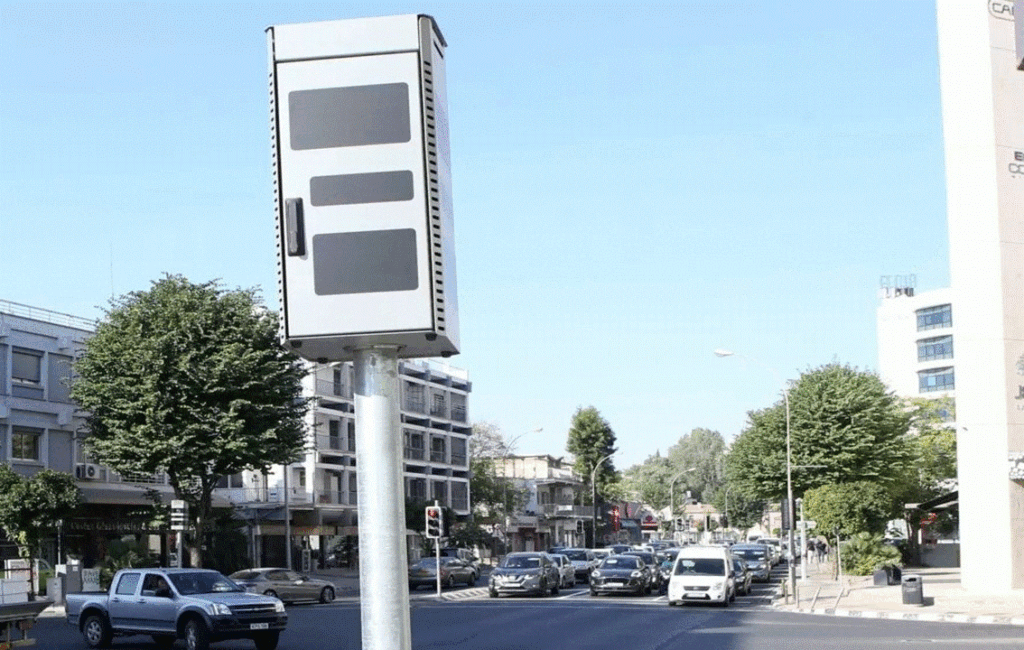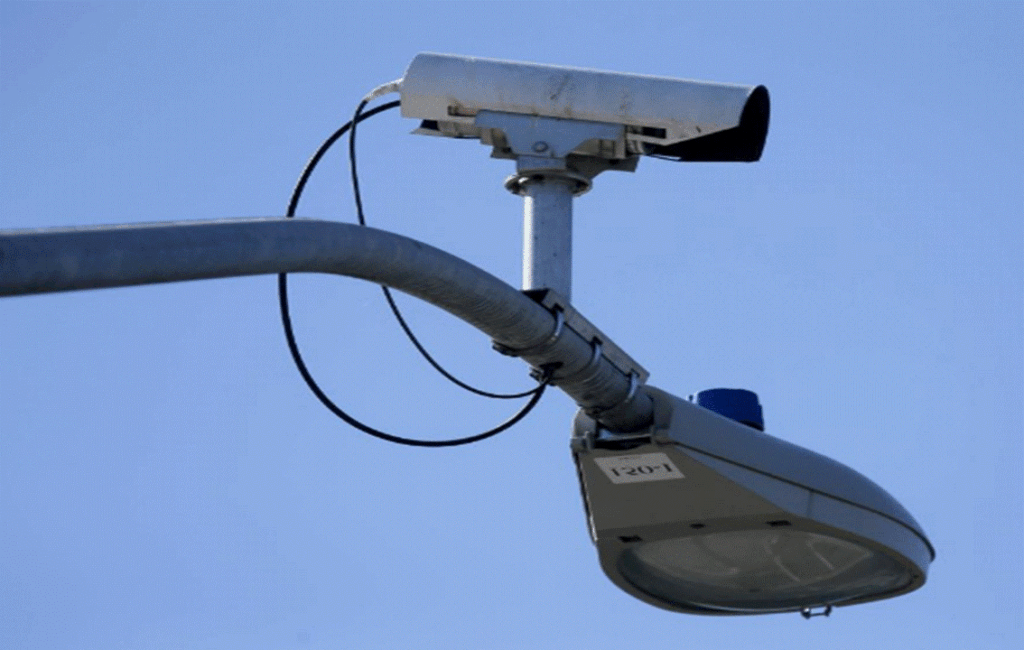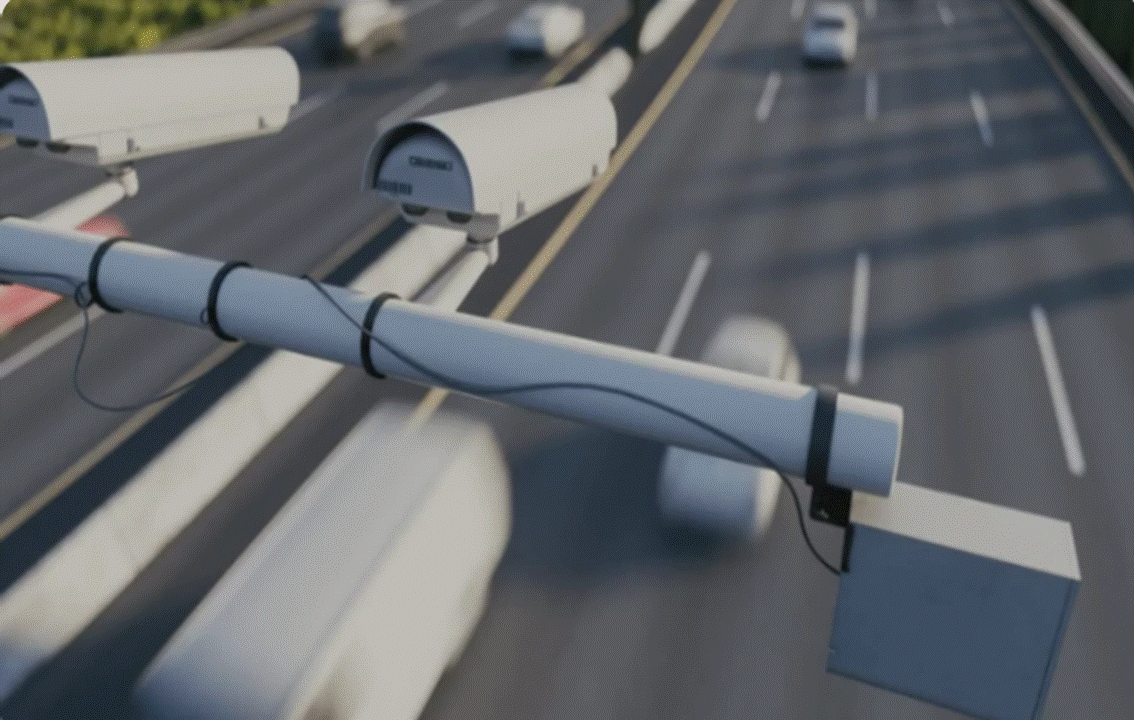
A CAMERA BANDWAGON
The Cyprus traffic camera revolution has firmly extended its reach across the whole of the island. This has helped to enforce the general view that the Cyprus authorities have firmly jumped onto the traffic camera bandwagon to simply generate income. Cyprus authorities, on the other hand, constantly maintain that the somewhat draconian measures in place are solely for maintaining road safety and not for generating extra income.
INDEPENDENT OBSERVERS
Many observers have mixed opinions about the introduction of most of these traffic cameras. Some regard the fines that result from them as excessive and demand to know where the revenue generated by the fines ends up. Several independent groups are constantly challenging authorities mainlty requesting full transparency.
HEIGHTENED DRIVER INSECURITY
The debate also rages on as to whether these cameras have made roads safer. Several drivers have gone on record stating that traffic cameras have led to heightened driver insecurity. Figures indicate that minor accidents have risen by 1 in 5 on the island since the introduction of traffic cameras. Several of these accidents have involved otherwise safe drivers, with some fully admitting that they would rather risk a non-fault accident than add points to their license and pay fines of up to €300 each time. Traffic cameras also record mobile phone use and seat belt violations. This footage is also used to issue fixed penalty fines to drivers.
A LEVEL PLAYING FIELD
Legitimate shortfalls have also allowed drivers to contest their fines in court successfully. Some drivers have stated that they did not receive ample warning of an approaching traffic camera. Several have also successfully argued that the lack of proper signage is complicit in creating an environment conducive to entrapment. Authorities in response have since overseen the painting of several white and yellow camera warnings on the road surface on approach to most junctions that have static traffic cameras. Proper vertical signage, warning drivers of approaching traffic cameras, has now also been installed across the island.
FIXED TRAFFIC CAMERAS
Static cameras are in place at most main traffic light junctions across the island. They record several different traffic contraventions. These include speeding, illegal U-turns and red light violations. It seems, however, that their effect has become somewhat negated. Several drivers have been recorded abruptly stopping at junctions in anticipation of a signal change. Others have been observed stopping at green light signals in anticipation of an amber light. Many have stated that this somewhat erratic driving has caused extended danger to all road users, including pedestrians and cyclists. Several drivers, in response, maintain they must now drive like this to avoid excessive fines. Many of these drivers state that they have previously received fines for passing through an amber signal or getting too close to a white traffic stop line.
STOP LINE & GREEN ARROW TURN VIOLATIONS
The cancellation of several fines, due to drivers successfully arguing stop line and right-turn violations in court, has prompted authorities to make further adjustments to static cameras. This has resulted in a longer grace period given for drivers to move out of a violation zone once signals change. Several drivers still claim, however, that they are still being unfairly fined for being stuck in a violation zone after a complete signal change. It has been suggested that once drivers initially secure a green light, they then have no choice but to pass through red lights due to oncoming traffic blocking their exit. This has resulted in several drivers stopping at a green light signal when turning right and then waiting a signal cycle for the green right turn filter to turn right.
MOBILE CAMERA VANS
Mobile camera vans are strategically placed in several ad-hoc locations across the island. These include most villages, towns, and cities, and the highways. These mobile vans employ the use of a new two-way technology that can check the speed of cars travelling in both directions. This technology, however, has been called into question on several occasions. Some of the fines issued have been revoked after drivers have successfully proved that the view of some of these cameras was proven to be obscured, making their fine null and void.
NEW PORPOSALS
A series of new proposals aimed at easing a mounting backlog of fines and sheilding professional drivers from driving bans are underway. One such proposal is the exemption of driving schools from traffic violations recorded by traffic cameras. Another is to increase the penalty points threshold for driving licenses.
NEW COUNTDOWN TIMERS
The Cypriot House of Representatives recently passed a series of new laws that mandate the installation of countdown timers at all traffic camera junctions. These timers will show the number of seconds left before a traffic light changes from green to amber and then to red. The proposed timers would be in place for both straight-ahead and right-turning traffic. The Ministry of Transport, however, has expressed opposition to these countdown timers. They claim that the timers disrupt the functionality of smart traffic lights. This has forced the government to send the new proposals back to parliament for further review. If fully approved, authorities will be required to install timers at all traffic lights that have traffic cameras within six months of the new law’s publication. Failure to do so will result in the suspension of all traffic light violation prosecutions until the full implementation of these timers.
VANDALISM
The general bad sentiment toward traffic cameras has also contributed to a rise in vandalism. Hooded individuals have constantly destroyed cameras across the island. They have also been seen on several occasions scaling traffic cameras and spray-painting over their lenses.
NEW PAYMENT DEADLINES
The Cypriot Parliament recently approved several new provisions for traffic fines.
The new provisions include
- The extension of the payment period from 30 to 90 days.
- The 90 day payment period will begin from the day a fine is received as opposed to the date of issue.
- Unpaid fines will increase by 50% after 90 days, .
- The extension of the criminal prosecution period for unpaid fines from 90 days to 105 days.
- Penalty points for traffic violations will now expire two years after issue.
NEW RULES FOR DRIVER PENALTY POINTS
The increase in driving bans firmly lies at the feet of the current traffic camera system, and several professional drivers have gone on record stating that the extended use of traffic cameras has made it impossible for them not to receive fines. They claim that this is due to their extra exposure to the road and comes after several of them have been issued with driving bans. In response, new legislation with regards to penalty points for traffic offences have now come into full effect.
This system has seen a stark increase in drivers receiving points and fines throughout the island daily. The stricter measures have seen several professional drivers reach their points limit in a short space of time, rendering some professional drivers unable to work.
This has helped to create a shortfall of people willing to risk their driving license to do these jobs. This has created a serious problem for firms that require drivers. Recent recruitment figures for this type of work are now down from previous years.
The reduction from three years to two for penalty points to expire and an increase in the threshold from 12 penalty points to 16 are expected to help alleviate the problem.
WHAT DO TRAFFIC CAMERAS ISSUE FINES FOR?
Once detected, both fixed and mobile cameras record traffic violations. These cameras usually capture the front or rear registration plates of vehicles. Their capture is usually signalled by a flash of light. The recorded images are then sent to a central system that identifies vehicle owners. The recorded images are then checked for other violations that may have also occurred. These include seatbelt or mobile phone violations, and helmet compliance for motorcycles. Once an incident is identified, fines are then issued to vehicle owners. Each fine includes a unique reference number that can be used to access details about any violations.
TRAFFIC VIOLATIONS
Cameras monitor nearly all traffic violations, and they capture the following
 Speeding violations
Speeding violations
 Red light violations
Red light violations
 Stop line violations
Stop line violations
 Seatbelt violations
Seatbelt violations
 Motorcycle helmet violations
Motorcycle helmet violations
 Mobile phone violations
Mobile phone violations
THINGS TO CONSIDER
There is no formal appeals process in place. This means that each violation recorded by a camera can only be contested in a Cyprus court of law!
NUMBERS ON TARGET!
Cyprus authorities have reaffirmed their commitment to road safety. With this in mind, they have renewed their alignment with the European Union’s goal of reducing road fatalities to zero by 2050. Authorities claim that they are now on target and have brought to the forefront the fact that the recent island-wide traffic camera scheme has helped to reduce both speed and accidents. The importance of adopting a safe system approach has also been constantly highlighted. Focus on minimising the consequences of road collisions is now at the forefront. The same authorities, however, still acknowledge that most accidents are attributed to human error.
A BACKLOG OF FINES
More than 100 island-wide traffic cameras are now operational, recording several violations daily. The non-payment of several of these fines, however, has helped to create a huge backlog of unpaid fines. Police, in their attempt to clear this backlog, have begun issuing warnings of legal proceedings against vehicle owners who have failed to settle fines.
AN INCREASE OF ONLINE PAYMENTS
Threats of further action have led to several vehicle owners rushing to try and settle their fines. They have done so by using a recently introduced online check and pay system. Online payments usually account for approximately 1,000 payments a day, but since the police announcement, this figure has risen to an estimated 5,000. Although this has helped to reduce some of the backlog, it has placed a considerable strain on the new online payment system.
A SERIES OF LEGAL COMPLICATIONS
Although the majority of fined drivers seem to be complying, several others remain defiant. These drivers claim that they intend to use their day in court to raise several issues that still surround the transparency for all involved. They also state that the legal complications surrounding the issue of fines remain a point of controversy. These people fully intend to challenge each fine separately in court.
A SERIES OF STRICT MEASURES
Several implications surrounding the enforcement of fines have also created several issues. Several vehicle owners who have not personally received their notices state that they believe their fines have not been served properly. They intend to use this as an argument when challenging these fines in court. In response, authorities maintain that drivers who may have missed or never received their notifications now have the opportunity to use the new online payment system to identify fines. Drivers can use this system to check as well as settle their fines. This, however, is also being challenged legally. If this new rhetoric stands up in a court of law, then it will mean that the onus will firmly be on the individual to check whether they have been fined or not. This, however, is not in line with the rest of the European Union and remains a topic for debate until its legal clarification is achieved!

HOW TO CHECK & PAY UNPAID TRAFFIC FINES
All traffic camera violations that occurred from January 1st, 2022, onwards, are now stored in a central online database. Police are urging the public to use this new online ‘out-of-court settlement fine checking system to check for traffic violations that may have been recorded against them. This new process aims to facilitate the Cypriot legal system by giving vehicle owners the option to pay any outstanding fines and avoid a court case.
Vehicle registration details and some personal information are required to search the database. Once the information is entered, any unpaid pending fines will be displayed against the name of the vehicle owner. Payment of these fines can then be made online directly through the Police website. Police maintain that any outstanding fines should be settled as soon as possible to avoid any further action.
Once successfully navigating the website, select ‘Search for pending Citations’
Select a document type
– Passport
– Cyprus ID
– Company registration number
– ARC number (for foreign residents)
Enter the serial number of your selected document and your vehicle’s registration number.
Details on any outstanding fines, including their total number and the serial numbers of each issued fine, will then be displayed.
How to Pay a Fine?
Fines can be paid online through JCCsmart under the Cyprus Police section.
Any vehicle owners who were not driving at the time of recorded violations are able to electronically register the ‘actual driver’ of the vehicle at the time of the violation using the new system.
Traffic Camera Enquiries Tel: 80 008 009
Click here to check for any unpaid pending fines
Click here to pay any outstanding pending fines



CYPRUS COURTS IN A DILEMMA!
Cyprus authorities have begun the next phase of prosecutions for traffic camera violations. Vehicle owners and drivers have been summoned to appear in courts across the island. Several have chosen, however, to contest each violation separately. This has been found to clog up the legal process and also waste the court’s time.
Several appointed legal representatives, who are fighting each prosecution on a case-by-case basis, are calling on courts to clarify a crucial legal point before each trial. The main point of contention surrounds whether a case can be substantiated without the extrajudicial execution having been directly served to the individual. This means that if an individual has not been served a fine within a proper legal context, then each violation would be invalidated.
This issue seems to have arisen from a grey area in the legal context. It has been of great concern in recent months to authorities, resulting in serious legal disagreements between public defenders and prosecutors. The latter, however, remain undeterred, and they are still aggressively implementing the rule of law concerning all traffic violations.


